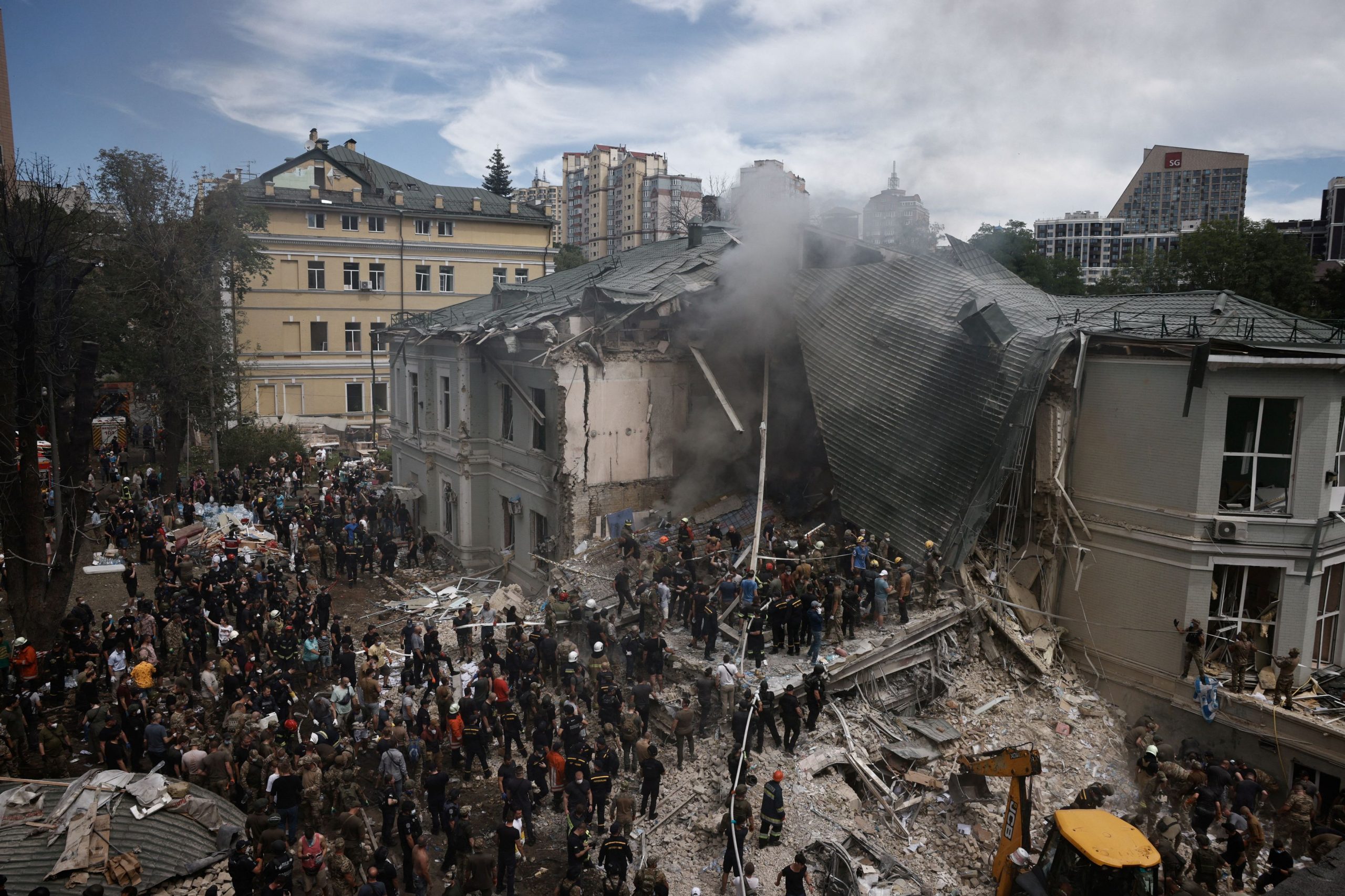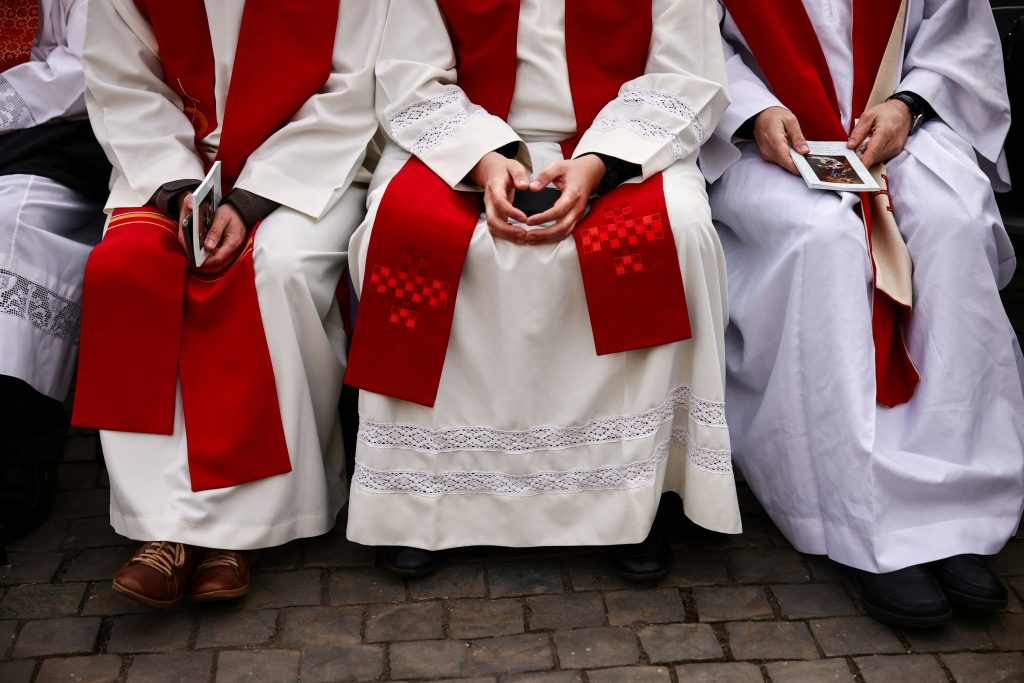KYIV, Ukraine—Russia launched its largest missile attack on Ukraine in months on Monday, striking a children’s hospital in Kyiv as well as other sites across the country, in an assault that left at least 26 people dead and dozens more injured, according to Ukrainian officials.
The early-morning barrage involved more than 40 missiles targeted toward at least five cities across Ukraine, according to Ukrainian President Volodymyr Zelensky . Much of the worst damage Monday was at the Okhmatdyt Children’s Hospital in Kyiv, where at least two people were killed when a missile ripped through the dialysis ward. Officials feared more people could be trapped under the rubble, and rescue workers were frantically searching for survivors into the afternoon.
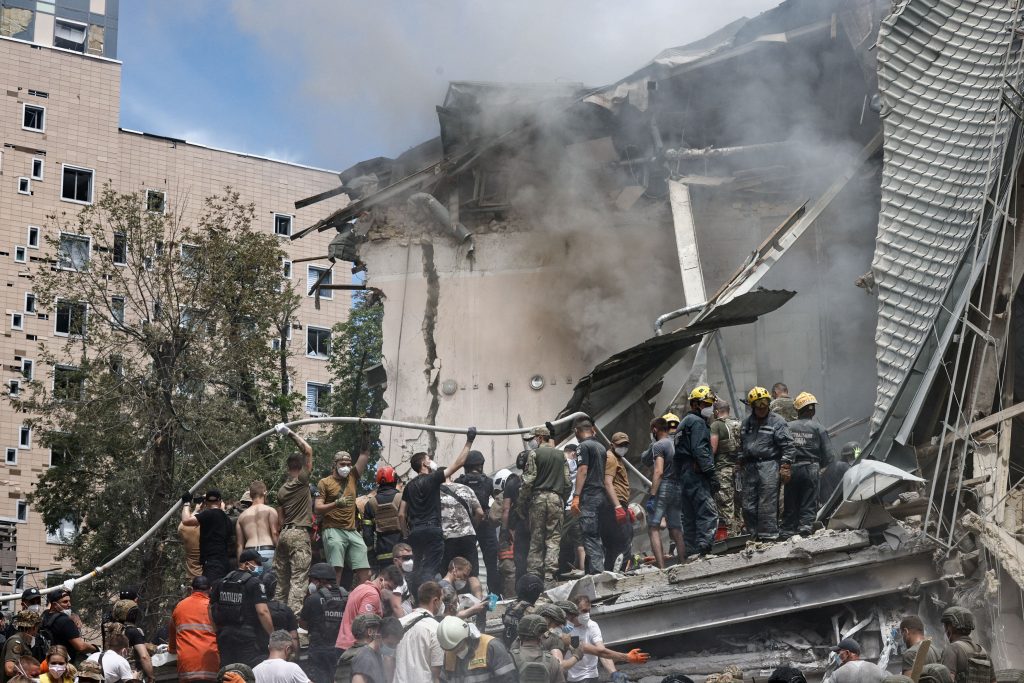
Rescuers work at Ohmatdyt Children’s Hospital that was damaged during Russian missile strikes, amid Russia’s attack on Ukraine, in Kyiv, Ukraine July 8, 2024. REUTERS/Thomas Peter
The strikes took place on the eve of the North Atlantic Treaty Organization summit in Washington, where support for Ukraine will be a top-line issue . The alliance is poised to announce a series of measures —including a pledge to provide $40 billion annually in military aid for Ukraine—which are designed to signal its long-term commitment to Kyiv but stop short of offering NATO membership.
Becoming part of the military alliance, which is based on collective defense, remains a distant dream for Ukraine, whose officials have for months been complaining about the slow drip of Western aid, including a shortage of air defenses. A right-wing political surge across Europe , and the possible return of Donald Trump to the White House, are adding to Kyiv’s fears that Western support for Ukraine could be diminishing.
Patients from Okhmatdyt were evacuated to other hospitals, local officials said, and posts on social media showed children who are undergoing treatment for cancer being led out of the hospital, wearing face masks and hooked up to IV drips.
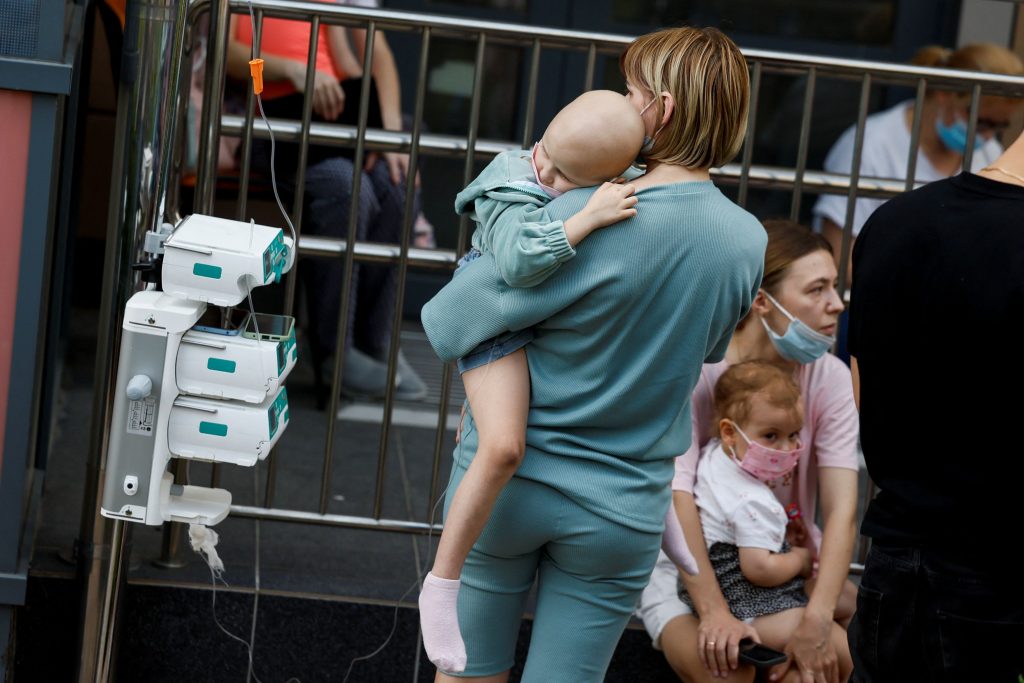
A woman carries a child near Ohmatdyt Children’s Hospital that was damaged during Russian missile strikes, amid Russia’s attack on Ukraine, in Kyiv, Ukraine July 8, 2024. REUTERS/Gleb Garanich
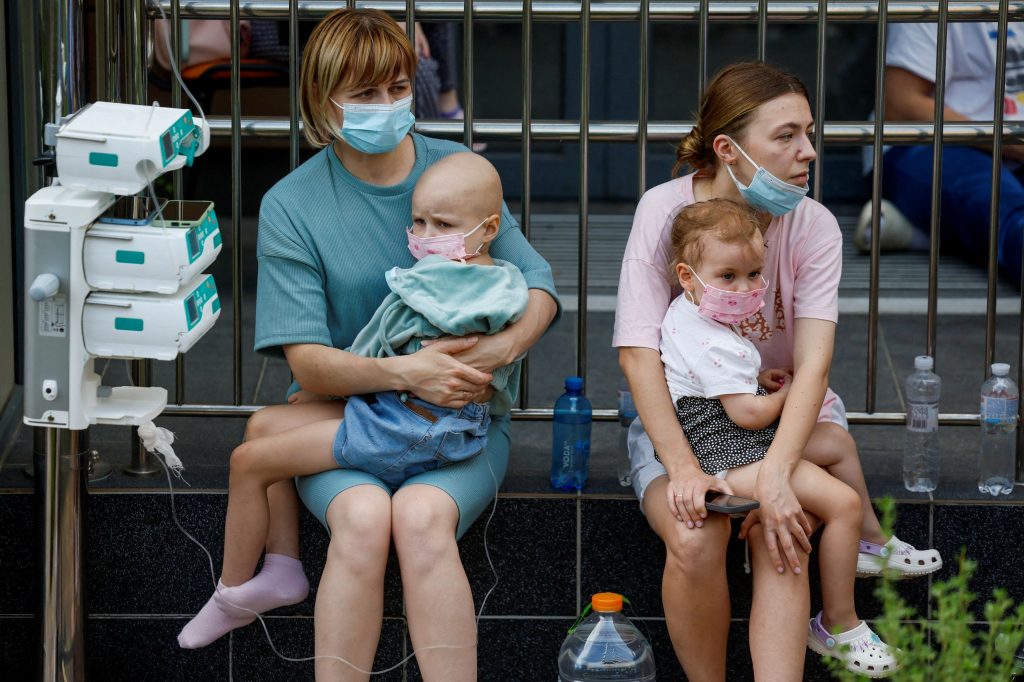
Women hold patients at Ohmatdyt Children’s Hospital that was damaged during Russian missile strikes, amid Russia’s attack on Ukraine, in Kyiv, Ukraine July 8, 2024. REUTERS/Gleb Garanich TPX IMAGES OF THE DAY
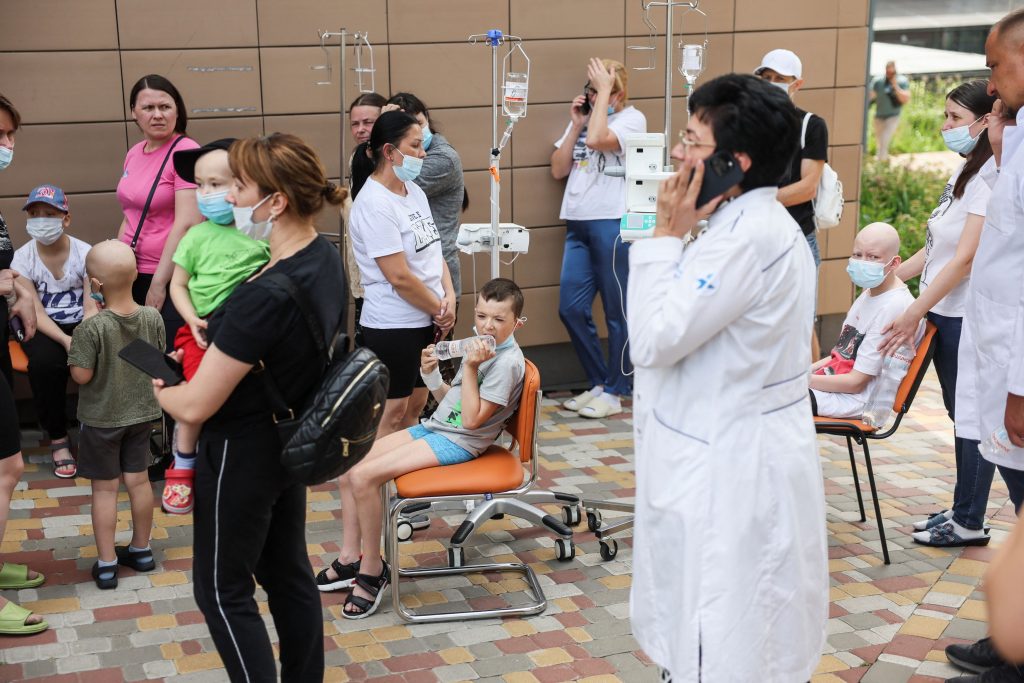
Patients look on near Ohmatdyt Children’s Hospital that was damaged during Russian missile strikes, amid Russia’s attack on Ukraine, in Kyiv, Ukraine July 8, 2024. REUTERS/Gleb Garanich
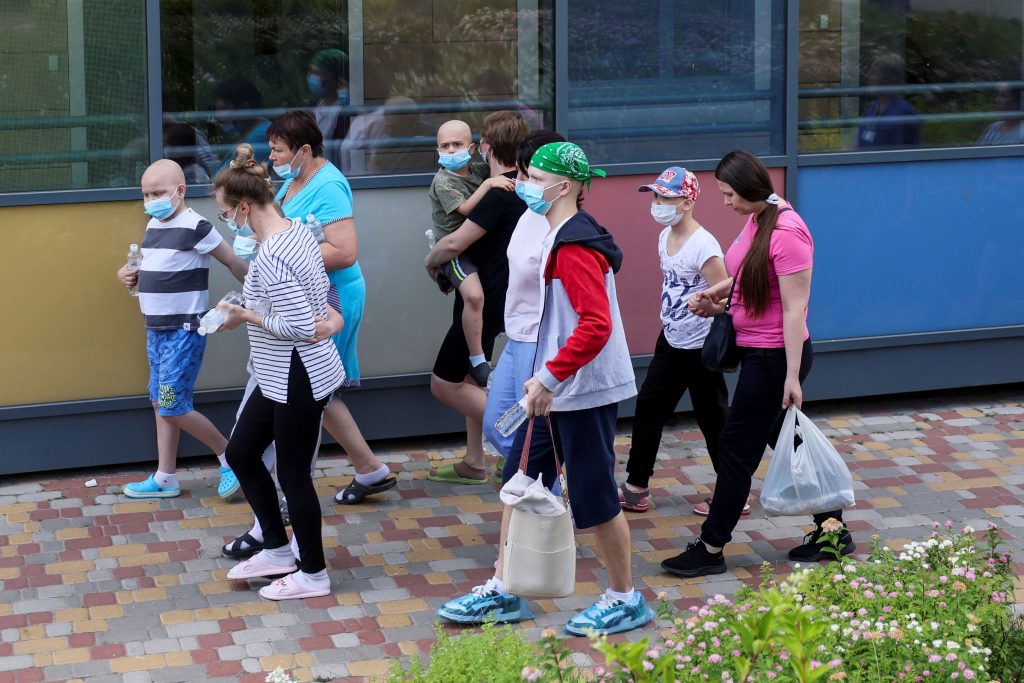
Andriy Yermak , Zelensky’s chief of staff, said the missile that hit the hospital was a Kh-101 cruise missile, which Ukraine has been able to shoot down in the past . He offered no explanation for why air defenses didn’t down the missiles this time.
“It contains dozens of microelectronics produced in NATO countries,” Yermak wrote of the missile on X. “We must stop this and bring it up at the NATO summit. The attack on children must be one of the key topics.”
Zelensky posted a series of images from the wreckage on social media, which showed children covered in blood and broken glass strewn across hospital rooms with cribs.
Several hours after the strike, volunteers were still arriving with bottled water and shovels. Soldiers and first responders were desperately searching the rubble for survivors as loose concrete fell around them. Nurses spoke to people looking for their missing relatives. Bloody mattresses lay outside the remains of the building.
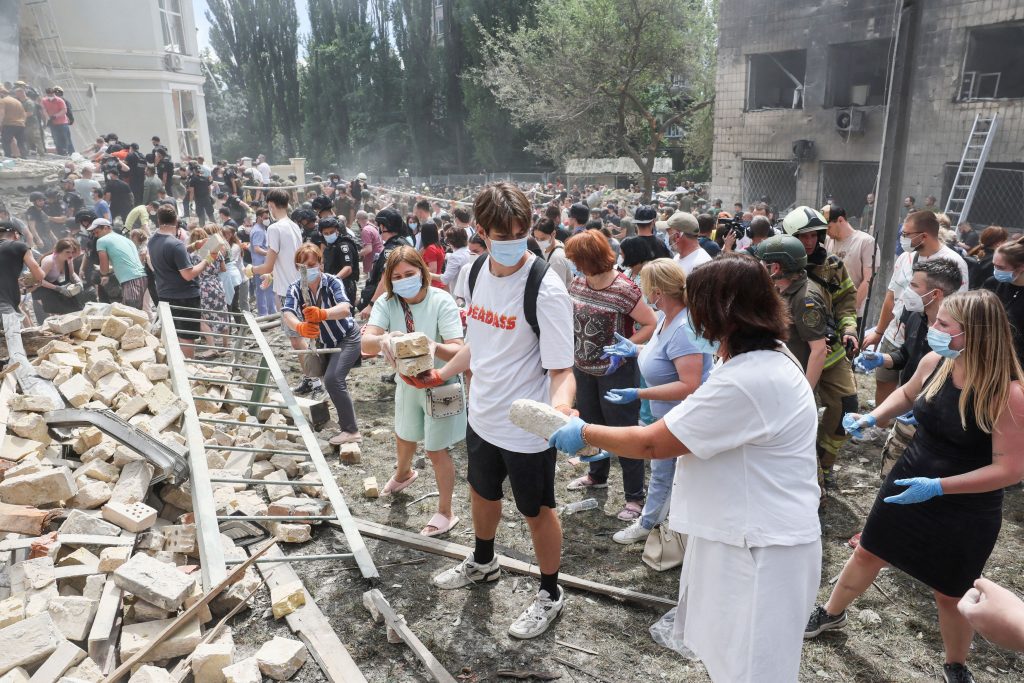
Rescuers work at Ohmatdyt Children’s Hospital that was damaged during Russian missile strikes, amid Russia’s attack on Ukraine, in Kyiv, Ukraine July 8, 2024. REUTERS/Gleb Garanich
“Everyone is helping to clear the rubble—doctors and ordinary people,” Zelensky wrote on X. “Russia cannot claim ignorance of where its missiles are flying and must be held fully accountable for all its crimes. Against people, against children, against humanity in general.”
In a post on Telegram, the Russian Defense Ministry denied targeting civilian infrastructure and blamed the damage on Ukrainian air defenses.
Karina, 33, who gave only her first name, said she had come to the hospital from Odesa with her 5-year-old son for surgery when the air-raid sirens began. They made it to the bomb shelter before the missile struck.
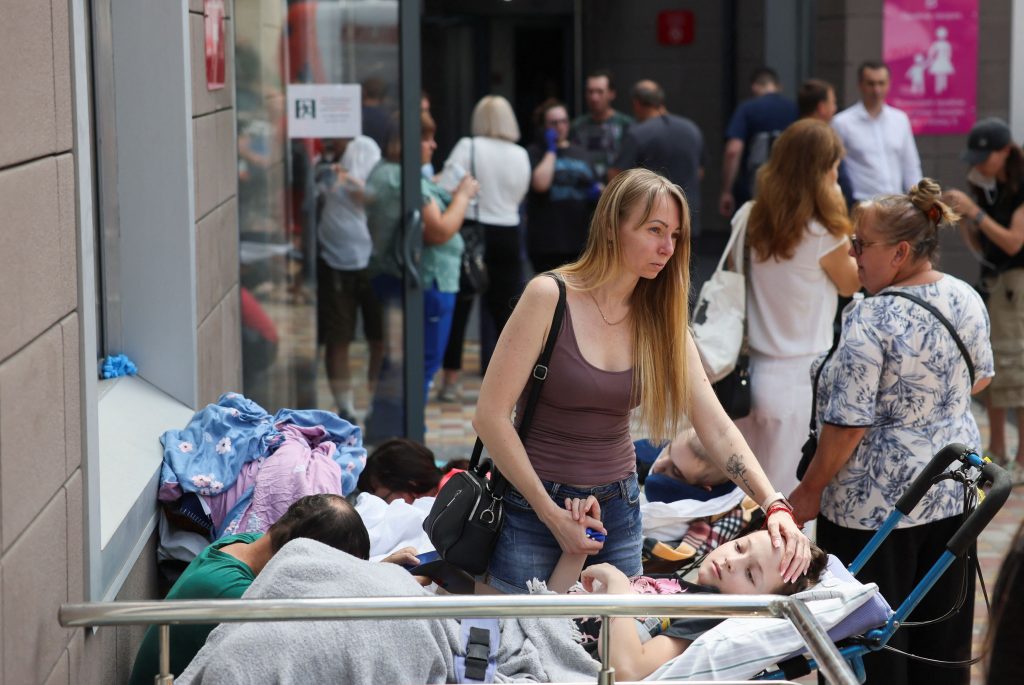
A woman touches a patient near Ohmatdyt Children’s Hospital that was damaged during Russian missile strikes, amid Russia’s attack on Ukraine, in Kyiv, Ukraine July 8, 2024. REUTERS/Gleb Garanich
“The strike was so hard—a piece of plaster fell from the ceiling of the basement,” she said. “People starting running around looking for their children. Some had clothes covered in blood. I put my hands on my child’s eyes so he wouldn’t see that. I am worried. My son needs emergency surgery and I don’t know if he can get it.”
Explosions were also heard in several other districts of Kyiv, and at least 15 people were killed across the capital, four of them at a maternity clinic in another medical center. After the first barrage, sirens continued to warn of more missiles, sending residents running to shelters.
At least 11 people were killed and 31 injured in the central Ukrainian city of Kryviy Rih, where missiles had struck an industrial complex, according to local officials.
Missile attacks on civilian areas, which were a regular feature of Russia’s strategy for much of the war, have become rarer in recent months, as Moscow has instead targeted Ukraine’s critical infrastructure with the goal of knocking out the power grid.
Russian troops also continue to push forward in eastern Ukraine, where Kyiv’s forces recently withdrew from a neighborhood in the besieged city of Chasiv Yar . Meanwhile, Ukraine has managed to halt the Russian incursion into the northeastern Kharkiv region.
Last week, Hungarian Prime Minister Viktor Orban visited both Kyiv and Moscow, an outreach which he said was meant to explore options for a peace deal. Hungary has frequently delayed or watered down NATO and European Union efforts to approve aid for Ukraine.
Write to Ian Lovett at ian.lovett@wsj.com and Benoit Faucon at benoit.faucon@wsj.com
